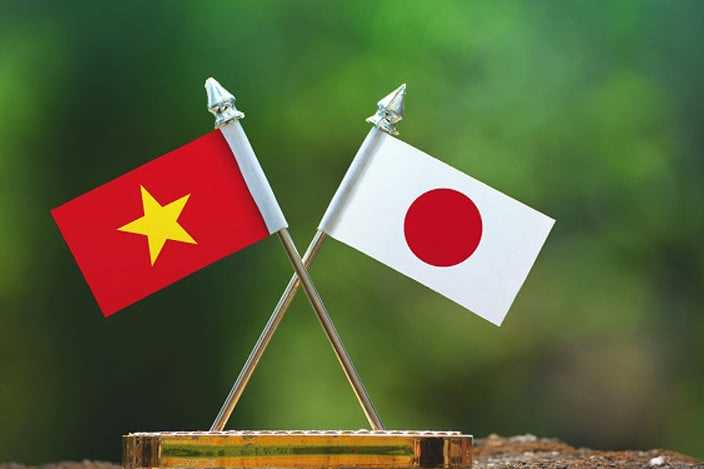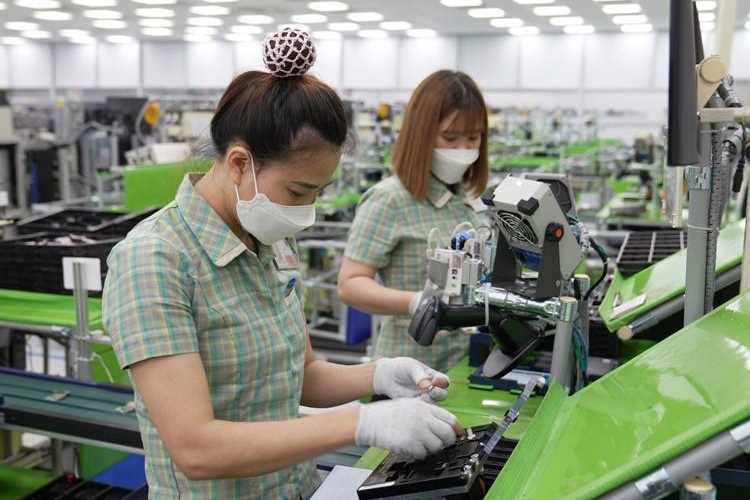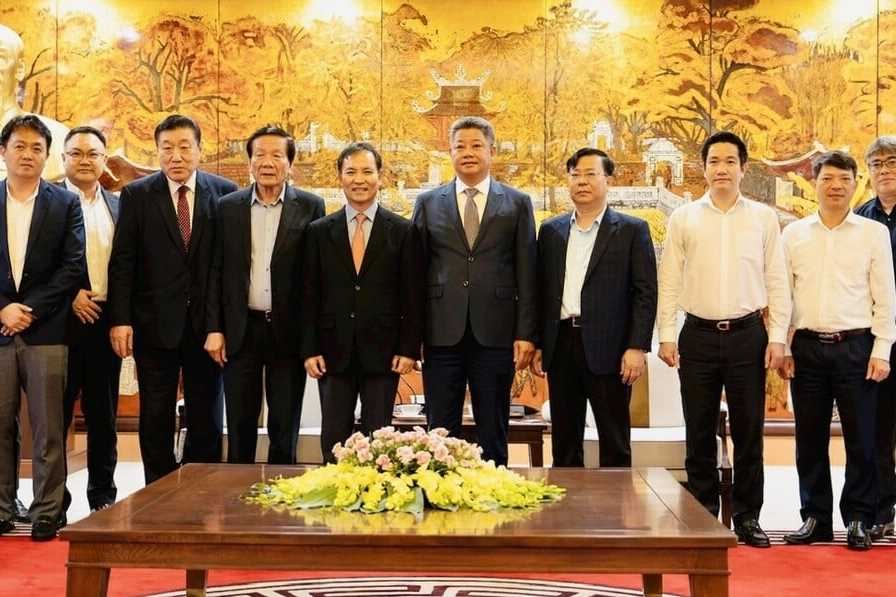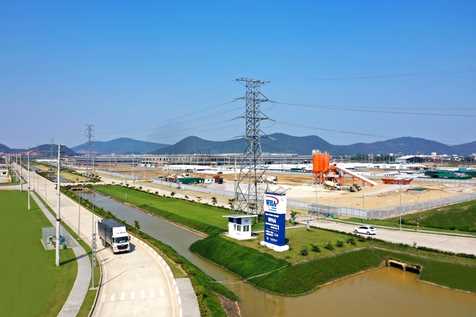Tiếng Việt:
VAFIE - Bản tin cập nhật thuế tháng 5/2024
Những điểm chính cần lưu ý:
- Thuế Thu nhập doanh nghiệp
- Chính sách thuế đối với chuyển nhượng chứng chỉ năng lượng tái tạo (REC)
Tình huống: Trường hợp công ty phát sinh hoạt động chuyển nhượng chứng chỉ năng lượng tái tạo (REC) trong khi đang được hưởng ưu đãi thuế TNDN theo địa bàn thì hoạt động chuyển nhượng chứng chỉ REC này có được hưởng ưu đãi thuế TNDN theo địa bàn không?
Hướng dẫn: Trường hợp doanh nghiệp có dự án đầu tư được hưởng ưu đãi thuế TNDN do đáp ứng điều kiện ưu đãi về địa bàn thì thu nhập của doanh nghiệp từ thực hiện dự án đầu tư tại địa bàn ưu đãi đầu tư được hưởng ưu đãi thuế TNDN theo điều kiện địa bàn. Theo đó, trường hợp doanh nghiệp đang được hưởng ưu đãi thuế TNDN theo điều kiện địa bàn có phát sinh thu nhập từ chuyển nhượng chứng chỉ năng lượng tái tạo (REC) không thuộc thu nhập của dự án đầu tư thì khoản thu nhập này không được hưởng ưu đãi thuế TNDN đối với dự án đầu tư theo quy định.
Tham khảo nội dung hướng dẫn theo Công văn số 2127/TCT-CS ngày 20/5/2024 của Tổng cục Thuế.
- Chính sách ưu đãi thuế TNDN đối với chênh lệch tỷ giá
Tình huống: Trường hợp Công ty được hưởng ưu đãi thuế theo lĩnh vực đầu tư thì khoản chênh lệch tỷ giá ngoại tệ sẽ được áp dụng ưu đãi thuế TNDN như thế nào?
Hướng dẫn: Khoản chênh lệch tỷ giá phát sinh trong kỳ liên quan trực tiếp đến doanh thu, chi phí của hoạt động sản xuất kinh doanh chính của doanh nghiệp được tính vào chi phí hoặc thu nhập của hoạt động sản xuất kinh doanh chính của doanh nghiệp. Trường hợp doanh nghiệp có dự án đầu tư được hưởng ưu đãi thuế TNDN do đáp ứng điều kiện về lĩnh vực ưu đãi đầu tư thì các khoản thu nhập từ lĩnh vực ưu đãi đầu tư và các khoản thu nhập như chênh lệch tỷ giá liên quan trực tiêp đên doanh thu, chi phí của lĩnh vực được ưu đãi cũng được hưởng ưu đãi thuê TNDN.
Tham khảo nội dung hướng dẫn theo Công văn số 1794/TCT-CS ngày 2/5/2024 của Tổng Cục Thuế.
- Chính sách thuế đối với việc chuyển lợi nhuận về nước
Tình huống: Trong điều kiện nào thì nhà đầu tư nước ngoài thành lập doanh nghiệp FDI tại Việt Nam được chuyển lợi nhuận về nước?
Hướng dẫn:
Nhà đầu tư nước ngoài được chuyển lợi nhuận ra nước ngoài khi kết thúc năm tài chính hoặc khi kết thúc hoạt động đầu tư trực tiếp tại Việt Nam sau khi doanh nghiệp mà nhà đầu tư nước ngoài tham gia đầu tư đã hoàn thành nghĩa vụ tài chính đối với Nhà nước Việt Nam theo quy định của pháp luật, đã nộp báo cáo tài chính đã được kiểm toán và tờ khai quyết toán thuế thu nhập doanh nghiệp cho cơ quan quản lý thuế trực tiếp đồng thời thực hiện đầy đủ nghĩa vụ theo quy định của Luật Quản lý thuế và các văn bản hướng dẫn thi hành.
Nhà đầu tư nước ngoài không được chuyển ra nước ngoài số lợi nhuận được chia hoặc thu được từ hoạt động đầu tư trực tiếp tại Việt Nam của năm phát sinh lợi nhuận trong trường hợp trên báo cáo tài chính của doanh nghiệp mà nhà đầu tư nước ngoài đầu tư của năm phát sinh lợi nhuận vẫn còn số lỗ lũy kế sau khi đã chuyển lỗ theo quy định của pháp luật về thuế thu nhập doanh nghiệp.
Nhà đầu tư nước ngoài thực hiện thông báo việc chuyển lợi nhuận ra nước ngoài theo quy định tại Điều 5 Thông tư số 186/2010/TT-BTC.
Tham khảo nội dung hướng dẫn theo Công văn số 4646/CTHDU-TTHT ngày 24/5/2024 của Cục Thuế Hải Dương.
- Hướng dẫn về việc chi phí thuế TNDN được trừ khi doanh nghiệp sử dụng hóa đơn bỏ địa chỉ kinh doanh
Tình huống: Trường hợp doanh nghiệp đang hoạt động và phát hiện ra có sử dụng hóa đơn của nhà cung cấp mà không còn hoạt động tại địa điểm đã đăng ký, vậy doanh nghiệp nên xử lý trường hợp này như thế nào?
Hướng dẫn: Trường hợp Công ty đã sử dụng hóa đơn mua hàng hóa, dịch vụ của cơ sở kinh doanh không hoạt động tại địa chỉ kinh doanh đã đăng ký để kê khai khấu trừ thuế GTGT, tính vào chi phí khi xác định thu nhập chịu thuế TNDN. Nếu thời điểm mua hàng hóa, dịch vụ phát sinh trước ngày xác định cơ sở kinh doanh không hoạt động tại địa chỉ kinh doanh đã đăng ký theo thông báo của cơ quan thuế, và cơ quan thuế hoặc các cơ quan chức năng khác chưa đủ căn cứ để kết luận đó là hóa đơn bất hợp pháp thì Công ty phải cam kết, chứng minh cũng như chịu trách nhiệm trước pháp luật việc mua bán là có thực. Đồng thời được cơ quan thuế thực hiện kiểm tra, thanh tra thuế xác định việc kê khai khấu trừ là đúng qui định thì Công ty được kê khai khấu trừ thuế GTGT đầu vào và tính vào chi phí khi xác định thu nhập chịu thuế TNDN đối với các hóa đơn mua hàng nói trên.
Tham khảo nội dung hướng dẫn theo Công văn số 13043/CTBDU-TTHT ngày 17/5/2024 của Cục Thuế Bình Dương.
- Thuế Giá trị gia tăng
- Chính sách thuế đối với chuyển nhượng chứng chỉ năng lượng tái tạo (REC)
Tình huống: Trường hợp công ty phát sinh hoạt động chuyển nhượng chứng chỉ năng lượng tái tạo (REC) thì hoạt động chuyển nhượng này có thuộc đối tượng được giảm thuế GTGT không?
Hướng dẫn: Trường hợp doanh nghiệp chuyển nhượng chứng chỉ REC không thuộc Danh mục hàng hóa, dịch vụ nêu tại các Phụ lục I, II và III ban hành kèm theo Nghị định số 44/2023/NĐ-CP ngày 30/6/2023 của Chính phủ và việc chuyển nhượng này phù hợp với quy định của pháp luật thì thuộc đối tượng giảm thuế GTGT theo Nghị định 44/2023/NĐ-CP.
Tham khảo nội dung hướng dẫn theo Công văn số 2127/TCT-CS ngày 20/5/2024 của Tổng Cục Thuế.
- Lập hóa đơn và kê khai thuế GTGT đối với doanh nghiệp chế xuất
Tình huống: Trường hợp Công ty A là DNCX cho Công ty B cũng là DNCX thuê nhà xưởng, văn phòng, nhà kho (phần dư thừa không sử dụng hết) mà các tài sản cho thuê này nằm toàn bộ trên diện tích mặt đất sử dụng được ghi trong giấy chứng nhận đăng kí đầu tư cấp cho Công ty B, vậy việc lập hóa đơn và kê khai thuế GTGT sẽ được thực hiện như thế nào?
Hướng dẫn:
- Về thuế suất thuế GTGT dịch vụ cho thuê nhà xưởng, văn phòng, nhà kho: Trường hợp Công ty B sử dụng toàn bộ diện tích nhà xưởng, văn phòng, nhà kho nêu trên phục vụ hoạt động chế xuất thì dịch vụ cho thuê nhà xưởng, văn phòng, nhà kho thuộc trường hợp không chịu thuế GTGT.
Trường hợp Công ty B sử dụng phần diện tích đi thuê trên để phục vụ hoạt động kinh doanh khác không phải là hoạt động chế xuất thì dịch vụ cho thuê nhà xưởng, văn phòng, nhà kho thuộc đối tượng chịu thuế GTGT với thuế suất thuế GTGT 10%.
- Về thuế GTGT đầu vào, đầu ra dịch vụ khác đi kèm (điện, nước, xử lý chất thải):
Trường hợp Công ty A không phải là đơn vị được phép kinh doanh dịch vụ điện, nước, xử lý chất thải; các dịch vụ nêu trên được các nhà cung cấp dịch vụ cung cấp trực tiếp cho Công ty B để phục vụ hoạt động chế xuất, Công ty A chỉ là đơn vị trung gian thực hiện thu hộ, chi hộ thì:
+ Nếu Hóa đơn của các nhà cung cấp dịch vụ điện, nước, xử lý chất thải ghi tên khách hàng là Công ty B thì các dịch vụ trên áp dụng thuế suất thuế GTGT 0%, Công ty A không phải kê khai, nộp thuế với các khoản thu hộ, chi hộ mà chỉ lập chứng từ thu, chi theo quy định.
+ Nếu Hóa đơn của các nhà cung cấp dịch vụ điện, nước, xử lý chất thải ghi tên khách hàng là Công ty A (là Công ty chi hộ) thì các dịch vụ trên áp dụng thuế suất thuế GTGT 0%. Khi thu lại số tiền chi hộ, Công ty A thực hiện lập hóa đơn đầu ra với thuế suất tương ứng là 0%.
Trường hợp các dịch vụ đi kèm nêu trên không phục vụ cho hoạt động chế xuất thì thuộc đối tượng chịu thuế GTGT, với thuế suất đầu ra và đầu vào là 10% theo quy định.
Tham khảo nội dung hướng dẫn theo Công văn số 1153/CTHNA-TTHT ngày 15/5/2024 của Cục Thuế Hà Nam.
- Thuế Thu nhập cá nhân
- Chính sách thuế TNCN đối với phúc lợi nhân viên
Tình huống: Trường hợp Công ty cung cấp thẻ đỗ xe miễn phí hoặc giảm giá cho người lao động của Công ty thì có phải kê khai tính thuế TNCN hay không?
Hướng dẫn:
- Trường hợp Công ty thiết lập chính sách về việc cấp thẻ đỗ xe cho nhân viên (miễn phí hoặc giảm giá) được ghi cụ thể điều kiện được hưởng và mức được hưởng tại một trong các hồ sơ sau: Hợp đồng lao động; Thỏa ước lao động tập thể; Quy chế tài chính của Công ty, Tổng công ty, Tập đoàn; Quy chế thưởng do Chủ tịch Hội đồng quản trị, Tổng giám đốc, Giám đốc quy định theo quy chế tài chính của Công ty, Tổng công ty, nếu mức chi này phù hợp với mức xác định thu nhập chịu thuế thu nhập doanh nghiệp theo các văn bản hướng dẫn thi hành Luật thuế thu nhập doanh nghiệp thì khoản chi này không tính vào thu nhập chịu thuế TNCN.
- Trường hợp mức chi nêu trên cao hơn mức quy định hiện hành của Nhà nước thì phần chi vượt mức phải tính vào thu nhập chịu thuế TNCN.
Tham khảo nội dung hướng dẫn theo Công văn số 26443/CTHN-TTHT ngày 7/5/2024 của Tổng Cục Thuế.
- Không xác định lại số thuế TNCN đã phân bổ khi quyết toán thuế
Tình huống: Trường hợp Công ty trả lương cho người lao động làm việc tại địa điểm kinh doanh của Công ty khác tỉnh với trụ sở chính, thì việc kê khai, nộp thuế và quyết toán thuế TNCN được thực hiện như thế nào?
Hướng dẫn:
- Công ty chi trả tiền lương, tiền công cho người lao động làm việc tại địa điểm kinh doanh tại tỉnh khác thực hiện khấu trừ thuế TNCN đối với thu nhập từ tiền lương, tiền công theo quy định và nộp hồ sơ khai thuế theo hướng dẫn tại Thông tư số 80/2021/TT-BTC.
- Đối với số thuế TNCN đã phân bổ và nộp vào ngân sách nhà nước cho từng tỉnh nơi người lao động làm việc thì Công ty không xác định lại khi quyết toán thuế thu nhập cá nhân căn cứ theo tiết a.1, điểm a, khoản 3, Điều 19, Thông tư số 80/2021/TT-BTC.
Tham khảo nội dung hướng dẫn theo Công văn số 24942/CTHN-TTHT ngày 26/4/2024 của Cục Thuế Hà Nội.
- Kê khai, nộp thuế TNCN đối với thu nhập từ thẻ hội viên sân golf
Tình huống: Trường hợp Công ty mua thẻ hội viên golf cho giám đốc Công ty thì việc kê khai nộp thuế TNCN sẽ được thực hiện như thế nào?
Hướng dẫn:
- Đối với thẻ hội viên sân golf đứng tên Giám đốc công ty thì Công ty kê khai toàn bộ giá trị thẻ vào thu nhập chịu thuế thu nhập cá nhân của Giám đốc tại thời điểm Công ty bàn giao thẻ cho Giám đốc theo hướng dẫn tại khoản 2 Điều 8 Thông tư số 111/2013/TT-BTC.
- Hiện tại Công ty đang thực hiện kê khai và nộp thuế theo quý thì Công ty thực hiện kê khai và nộp thuế theo quý đối với quý chi trả phí thẻ hội viên sân golf đứng tên Giám đốc theo quy định tại khoản 2 Điều 8 Nghị định 126/2020/NĐ-CP.
Tham khảo nội dung hướng dẫn theo Công văn số 3512/CTTGI-TTHT ngày 28/11/2023 của Cục Thuế Tiền Giang.
English:
VAFIE - Tax newsletter May 2024
Notable key points:
- Corporate Income Tax (CIT)
- Tax policy for the transfer of renewable energy certificate (REC)
Situation: If the company incurs a transfer of Renewable Energy Certificate (REC) whilst the company is enjoying the CIT incentive under location condition, is this transfer activity eligible for CIT incentives based on location?
Instruction: In case an enterprise has an investment project that is entitled to CIT incentives due to meeting the preferential conditions in the area, the income of the enterprise from the implementation of the investment project in the area eligible for investment incentives is entitled to CIT incentives according to the conditions of the area. Accordingly, in case an enterprise is enjoying CIT incentives under the conditions of the area where income from the transfer of renewable energy certificate (REC) is not included in the income of the investment project, this income is not entitled to CIT incentives for the investment project as prescribed.
Refer to the guiding content according to Official Letter No. 2127/TCT-CS dated May 20, 2024 of the General Department of Taxation.
- CIT incentive for the foreign exchange differences
Situation: In case the company is subject to CIT incentive under the conditions of investment industry, how are the arising foreign exchange differences treated with regard to CIT incentives?
Instruction: The foreign exchange differences arising during the period that are directly related to the revenue and expenses of the main production and business activities of the enterprise are accounted for as expenses or income of the main production and business activities of the enterprise. In the case where the enterprise has an investment project that is eligible for CIT incentives due to meeting the conditions of the preferred investment sector, the income from the preferred investment sector and income items such as foreign exchange differences directly related to the revenue and expenses of the preferred sector are also eligible for CIT incentive.
Refer to the guiding content according to Official Letter No. 1794/TCT-CS dated May 2, 2024 of the General Department of Taxation.
- Tax policy on repatriating profit
Situation: Under what conditions are foreign investors establishing FDI enterprises in Vietnam allowed to repatriate profits to their home country?
Instruction:
Foreign investors are allowed to remit profits abroad upon the conclusion of the fiscal year or upon the termination of direct investment activities in Vietnam after the enterprise in which the foreign investor has participated has fulfilled its financial obligations to the State of Vietnam in accordance with the law, has submitted audited financial statements and corporate income tax finalization declarations to the direct tax administration authorities, and has fully complied with obligations as stipulated by the Tax Administration Law and its guiding documents.
Foreign investors are not allowed to transfer abroad the profits shared or earned from direct investment activities in Vietnam for the profit-generating year if, on the financial statements of the enterprise in which the foreign investor has invested for the profit-generating year, there is still an accumulated loss after carrying forward losses in accordance with the corporate income tax law.
Foreign investors must notify the transfer of profits abroad in accordance with the regulations set out in Article 5 of Circular No. 186/2010/TT-BTC
Refer to the guiding content according to Official Letter No. 4646/CTHDU-TTHT dated May 24, 2024 of Hai Duong Tax Department.
- Guiding on CIT deductible expense for the decamping invoices
Situation: In the event that during its operations, the company discovers that it has used invoices from suppliers that are no longer active at the registered business location, how should the company proceed with handling this situation?
Instruction: In the case where the Company has used invoices for the purchase of goods and services from a business establishment that is not operating at the registered business address to declare VAT deduction and include it in expenses when determining taxable corporate income. If the time of purchasing goods and services occurred before the date on which the business establishment was determined to be non-operational at the registered business address according to the notification of the tax authorities, and the tax authorities or other competent agencies do not have sufficient grounds to conclude that these are illegal invoices, then the Company must commit, prove, and be legally responsible for the authenticity of the transactions. Concurrently, if the tax authorities conduct a tax audit and inspection and determine that the declaration for deduction is in accordance with regulations, then the Company is allowed to declare the input VAT deduction and include it in expenses when determining taxable corporate income for the aforementioned purchase invoices.
Refer to the guiding content according to Official Letter No. 13043/CTBDU-TTHT dated May 17, 2024 of Binh Duong Tax Department.
- Value Added Tax (VAT)
- Tax policy for the transfer of renewable energy certificate (REC)
Situation: If the company engages in the transfer of Renewable Energy Certificate (REC), is this transfer of REC eligible for a reduction in VAT?
Instructions: In case the enterprise transferring the REC certificate is not on the list of goods and services specified in Appendices I, II and III issued together with the Government's Decree No. 44/2023/ND-CP dated June 30, 2023 and this transfer is in accordance with the provisions of law, it is subject to VAT reduction under Decree 44/2023/ND-CP.
Refer to the guiding content according to Official Letter No. 2127/TCT-CS dated May 20, 2024 of the General Department of Taxation.
- Guiding on issuing invoice and declaring VAT with EPEs
Situation: In the case where the Company A is a processing export enterprise (EPE) that leases factories, offices, and warehouses (surplus parts not fully utilized) to Company B, which is also an EPE, and these leased assets are located entirely on the land area recorded in the investment registration certificate issued to Company B, how will invoicing and VAT declaration be conducted?
Instruction:
- Regarding the VAT rate for the leasing service of factories, offices, and warehouses: If Company B uses the entire area of the factories, offices, and warehouses mentioned above for export processing activities, then the leasing service is not subject to VAT. If Company B uses the leased area for other business activities that are not export processing activities, then the leasing service of factories, offices, and warehouses is subject to VAT at a rate of 10%.
- Regarding input and output VAT for other accompanying services (electricity, water, waste treatment): If Company A is not an entity permitted to trade in electricity, water, and waste treatment services; and these services are provided directly by service providers to Company B for export processing activities, and the Company A is only an intermediary for collection and payment, then:
+ If the invoices from the service providers of electricity, water, and waste treatment list Company B as the customer, then these services apply a VAT rate of 0%, and the Company A does not have to declare or pay tax on the collected and paid amounts but only needs to prepare collection and payment documents as regulated.
+ If the invoices from the service providers of electricity, water, and waste treatment list the Company A (as the paying intermediary) as the customer, then these services apply a VAT rate of 0%. When recollecting the paid amounts, the Company A must issue output invoices with a corresponding rate of 0%. If the aforementioned accompanying services do not serve export processing activities, they are subject to VAT, with output and input tax rates of 10% as regulated.
Refer to the guiding content according to Official Letter No. 1153/CTHNA-TTHT dated May 15, 2024 of Ha Nam Tax Department.
- Personal Income Tax (PIT)
- PIT policy regarding employee benefits
Situation: In the case the company providing free or discount parking cards to employees, is it necessary to calculate PIT?
Instruction:
- In the case where the company establishes a policy on providing parking cards to employees (free of charge or at a discount), and the conditions and levels of entitlement are specifically recorded in one of the following documents: Labor contract; Collective labor agreement; Financial regulations of the Company, Corporation, or Group; Bonus regulations set by the Chairman of the Board of Directors, General Director, or Director according to the financial regulations of the Company, Corporation, if this expense level is consistent with the level determined for taxable corporate income according to the documents guiding the implementation of the Corporate Income Tax Law, then this expense is not included in the taxable PIT income.
- If the expense level mentioned above is higher than the current state-regulated level, then the excess amount must be included in the taxable PIT income.
Refer to the guiding content according to Official Letter No. 26443/CTHN-TTHT dated May 7, 2024 of the General Department of Taxation.
- PIT allocation shall not be re-determined at the finalization stage
Situation: If the company pays salaries to employees working at the company's business location in a province other than the company's headquarters, how is PIT declaration, payment, and finalization conducted?
Instruction:
- When paying salaries and wages to employees working at business locations in other provinces, the Company should withhold PIT according to regulations and submit tax declaration documents according to Circular 80/2021/TT-BTC.
- With respect to the amount of PIT allocated and remitted to the State budget for each province where the employee works, the Company is not required to re-calculate upon PIT finalization in accordance with item a.1, point a, clause 3, Article 19, Circular 80/2021/TT-BTC.
Refer to the guiding content according to Official Letter No. 24942/CTHN-TTHT dated April 26, 2024 of Hanoi Tax Department.
- Declaration and payment of PIT on income from golf club membership cards
Situation: In case company buys a golf membership card for the company director, how should they declare and pay PIT?
Instruction:
- For golf club membership cards registered in the name of the company's Director, the company must declare the full value of the card as part of the Director's personal income tax at the time the company hands over the card to the Director, as guided in Clause 2, Article 8 of Circular No. 111/2013/TT-BTC.
- If the company is currently declaring and paying taxes quarterly, the company must declare and pay taxes quarterly for the quarter in which the golf club membership fee is paid for the card registered in the name of the Director, in accordance with the regulations in Clause 2, Article 8 of Decree 126/2020/ND-CP.
Refer to the guiding content according to Official Letter No. 3512/CTTGI-TTHT dated November 28, 2023 of Tien Giang Tax Department.













